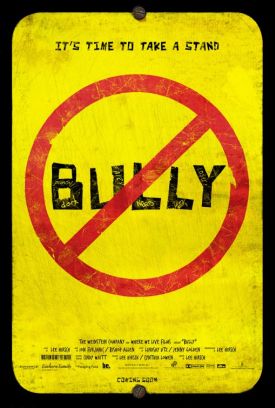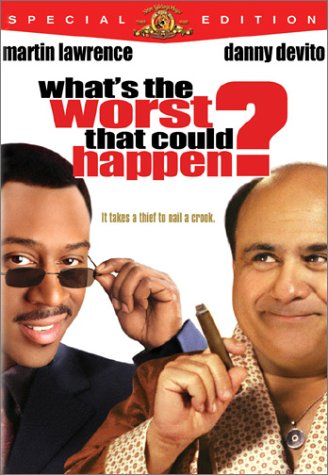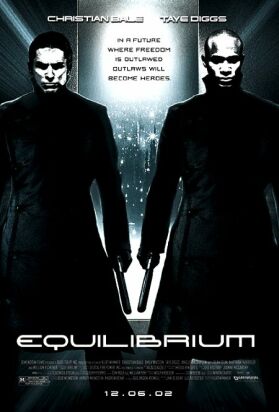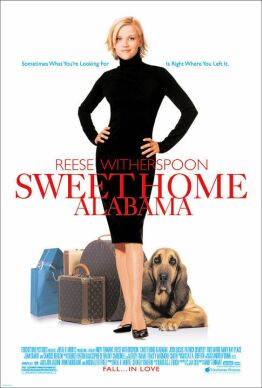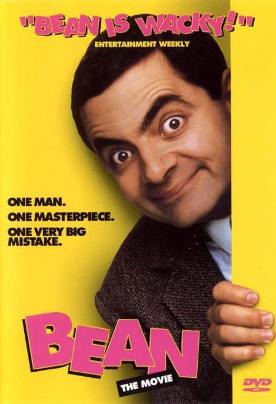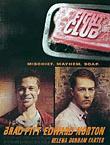Bully
When former Governor Rod Blagojevich of Illinois went to prison last month, Jay Leno inevitably made a couple of jokes about the fact in the monologue to his late night show on NBC. One of them had to do with Mr Blagojevich’s chances of finding another former Illinois governor as his cell mate. The other went something like this. “Rod Blagojevich says he guarantees his conviction will be overturned, but I have a guarantee of my own. I guarantee that within days of his going into prison, it will be Rod who is overturned. . .” If, that is, you catch his drift. No one seems to have protested against Mr Leno’s making a joke about one of the most horrific forms of bullying imaginable, anal rape, so perhaps we can take his and his audience’s inclination to mirth on such a subject as a good illustration of the difficulties of persuasion lying in the way of Lee Hirsch’s documentary, Bully. I think it’s also an illustration of what is wrong with the film.
What’s wrong is that there are so many ways of distancing ourselves from the problem that it can hardly be said to be a problem. That Rod B. is a corrupt former governor caught out in an incredibly clumsy attempt to sell a U.S. Senate seat and who subsequently made a buffoonish attempt to capitalize on his fame doubtless helps to distance him, in Jay’s mind, from Jay himself and those who laugh at his jokes. They’re not the ones being raped. Another form of distancing was summed up by the South Park kids: “Let’s all join together and make bullying kill itself. Bullying is an ugly thing, let’s shove its face in the dirt.” The point is that you can’t really treat bullying as a problem in the abstract, apart from the context in which some particular act of bullying takes place. The only way history shows of fighting bullying is by fighting back against the bully — which, in our faulty modern way of looking at things makes the bully indistinguishable from the bullied. That must be why Mr Hirsch acts as if fighting back were not an option. His victims all have to retain their pure victimhood.
I have written elsewhere of how hypocrisy is now, perhaps, the only sin remaining in the catalogue, at least so far as the media are concerned, but here is one other to keep it company: the sin of “blaming the victim.” Any suggestion that someone who suffers might have, or might have had, however remotely or tentatively, some recourse to his own resources in order to prevent his own suffering, or that of others, is widely regarded as an intolerable impertinence. Thus, when a policeman in Toronto last year suggested to some young women that if they wished to avoid the occasion of sexual assault, they might want to dress modestly and not like sluts, he sparked off a world-wide movement of protest called “Slut-walking” in which young women took it on themselves to dress as they imagined sluts might do in order to assert their right to dress indiscreetly — and to warn others against the policeman’s grievous sin of blaming the victim.
Maybe you can see what the problem is here? By refusing to blame the victim, you are in effect not blaming the perpetrator either. By insisting on viewing sexual assault as a social or political problem rather than a moral or legal lapse by some individual, you remove the whole matter from the moral realm in order to re-insert it into the political one. And that is what we are seeing in Bully as well. Entirely focused as it is on a half-dozen youthful victims of bullying, the movie has much to say about bullying as a general social problem — a problem in the abstract — but almost nothing to say about the people who are actually doing the bullying. Only two bullies show their faces to the camera, but neither is pursued or questioned in any detail. One cheerfully sticks out his hand to “make up” with his victim in response to a dim assistant principal’s request but is then dismissed so that the dim assistant principal can proceed to berate the victim for his reluctance to be “friends” with his persistent persecutor.
Although he makes light of the fact, the other bully with a face admits under interrogation to having hit the one child, Alex Libby, age 13, whose bullying we actually witness on film, saying that it was “Because he made me so mad.” So far as we see, that’s all there is to be said about his despicable deed. The bully is a caricature and neither he nor his victim is treated as a moral agent in the affair. Both are mere symptoms of something else, of that abstract problem of bullying which, being an abstract problem, can only have an abstract solution — which remains as elusive as ever. You’ve got to be against bullying, don’t you? But being against bullying is like being against bad luck. However much you may hate it and attempt to raise people’s political consciousness against it, you must know you are never going to make it go away. In fact, by treating it in this way I think you are likely to make the problem, insofar as it is a problem, worse, since you are taking your focus off the real cause of bullying, which is bullies, and putting it on something else, which is social problems.
There are other problems with the picture. The most prominently featured of the bully-victims is a 17-year-old boy from Georgia, Tyler Long, who killed himself, supposedly as a result of being bullied, in 2009. Emily Bazelon in Slate has cast considerable doubt on this story as it is told in the film and obtained from Mr Hirsch himself an admission that he left out several details which most people in his audience would be likely to think highly relevant, including Tyler’s history of mental illness and a suicide note which never mentions bullying — not to mention the fact that his parents are suing the school district for a considerable amount of money and so have a financial interest in telling the story in such a way as to maximize those details which support the portrait of their son as a bully-victim and to minimize those which do not.
The most revealing moment in Bully, I think, comes when a grade-school kid who was the friend of an 11-year-old from Oklahoma, Ty Smalley, who also killed himself after being bullied, explains his own process of enlightenment. He himself had been a bully in the second grade, he confesses to Mr Hirsch’s camera, but then started to have a bad conscience about it in third grade. By the time he got to fourth grade, he had made up his mind “to be cool with everybody.” True, when he saw his friend Ty being bullied, he had the urge to take the bullies on. He looks like he could have done it too. But Ty would say to him: “Trey, it’s not worth it. Be better than them.” And so Trey, full of admiration for his friend’s saint-like forbearance, would be better than them and refuse to fight. And so the bullying went on. And so Ty killed himself. But the main thing is, I guess, that he was better than them.
Trey, we can see, has got the right political message: “If I were the king of the United States, there would be no popularity,” he says. “Everybody would be equal. That’s the way it should be.” This is only a slightly less sophisticated outlook on things from that of Ty’s dad, Kirk, who lives in a house filled with the stuffed heads of slaughtered deer, mounted on the walls, and who, while claiming to be a “nobody” himself, professes to believe that “If this had happened to a politician’s kid, there would be a law tomorrow.” A law to do what, exactly? Outlaw popularity, perhaps? The refrain that runs throughout the movie is that horror z followed horror y which followed horror x — “and yet, nothing was done.” But at no point does the film have anything concrete to suggest about what it thinks should be done.
To Mr Hirsch’s credit we actually see the nothing, and the worse than nothing, which is done in the case of the dim assistant principal aforementioned. When Alex Libby’s parents bring him into school to complain about the fact that nothing is being done, she admits her helplessness — and then proceeds to take out a photo of her new-born grand-child, saying: “I don’t want anything to happen to these babies, any of them.” At least she has her good intentions to keep herself safe. Her even more dim colleague then asks poor Alex, who is also known to his tormentors as “Fish Face” and who has complained to her, too, of the school’s nothing-doing, how he knows that she didn’t do anything when he reported to her back in sixth grade that Teddy had sat on his head on the bus. “Did he sit on your head again?”
“Well, no,” admits Alex. “But” — under his breath — “he did other stuff after that.”
Indeed he did, too, for we have seen him doing it. But the authorities’ doing nothing is rather like the thing they’re doing nothing about in being, apparently, an impenetrable mystery to Mr Hirsch. Someone, perhaps it is Alex’s dad, makes a plaintive reference to the fact that, in his school days, the bus driver would have stopped the bus if that kind of thing were going on and knocked some heads together. Unspoken is the reason why that doesn’t happen anymore. Likewise, another of the film’s child interviewees tells us wonderingly of his own experience with being bullied: “It came to the point where I had to stand up for myself for them to leave me alone!” Fancy that! That the poor thing should have been driven to such an extreme!
I had the feeling that the biggest bully here was the social and moral consensus which says that fighting — fighting as such and irrespective of whether you are the bully or the one being bullied — is wrong and intolerable. That is the thug in the corner quietly tapping his baseball bat into the palm of his hand and saying that we had better not say anything about real fighting, as opposed to the political kind. Not if we know what’s good for us. Bullying is a terrible problem, he will readily agree with you. Something certainly ought to be done about it. But the one thing that we know can be done about it, namely taking on the bully, must never be proposed or even mentioned except in the most oblique way. That is simply not something which is on the table anymore, at least so far as Mr Hirsch and his subjects are concerned. They are all determined, like poor dead Ty Smalley, to be “better than” those who do such things. And so nothing ever is done — except to say what a scandal it is that nothing is ever done.
Discover more from James Bowman
Subscribe to get the latest posts to your email.

